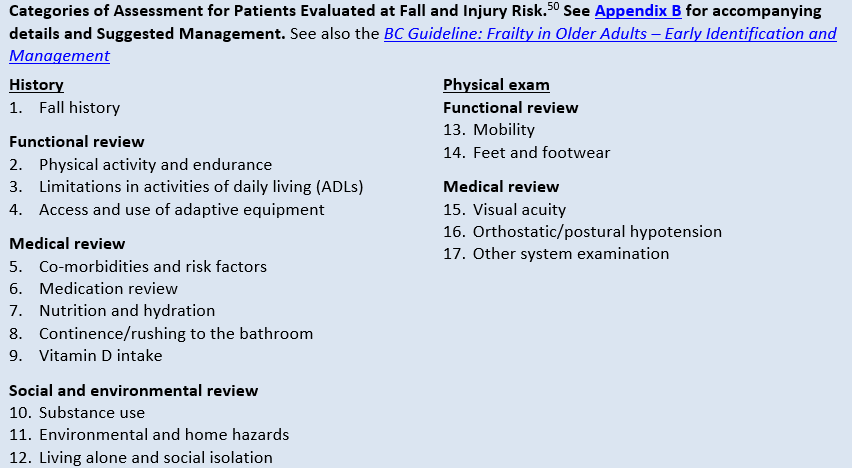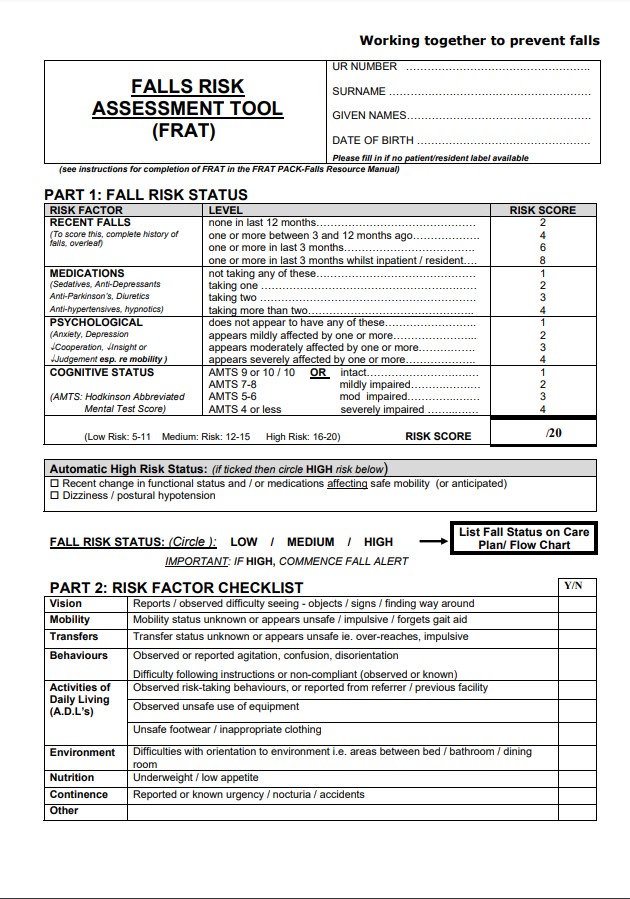How Dementia Fall Risk can Save You Time, Stress, and Money.
How Dementia Fall Risk can Save You Time, Stress, and Money.
Blog Article
The 45-Second Trick For Dementia Fall Risk
Table of Contents4 Easy Facts About Dementia Fall Risk DescribedDementia Fall Risk Can Be Fun For AnyoneUnknown Facts About Dementia Fall RiskAll About Dementia Fall RiskThe Definitive Guide to Dementia Fall Risk
You could be worried due to the fact that you have actually had a loss prior to or because you have actually discovered you're starting to feel unstable on your feet. You may have seen changes to your health, or just feel like you're decreasing a little. Whatever the factor, it isn't unusual to become cautious and lose self-confidence, and this can quit you doing the important things you made use of to do and make you really feel extra separated.If you've had a fall or you've started to feel unstable, inform your physician even if you really feel fine otherwise. Your medical professional can inspect your equilibrium and the way you stroll to see if renovations can be made. They may be able to refer you for a falls threat analysis or to the falls avoidance service.
This information can be gotten with interviews with the person, their caregivers, and a review of their medical documents. Begin by asking the private about their background of falls, including the regularity and situations of any current drops. Dementia Fall Risk. Ask about any type of movement troubles they might experience, such as unsteady or problem walking
Conduct a complete review of the individual's drugs, paying specific focus to those understood to raise the danger of falls, such as sedatives or drugs that lower high blood pressure. Determine if they are taking numerous medications or if there have actually been current modifications in their drug regimen. Evaluate the person's home setting for prospective dangers that could boost the risk of falls, such as inadequate illumination, loosened rugs, or lack of grab bars in the washroom.
All About Dementia Fall Risk
Guide the individual through the loss threat evaluation type, describing each concern and tape-recording their reactions accurately. Compute the complete threat score based on the feedbacks given in the assessment form.
This strategy might consist of exercise programs to enhance stamina and balance, drug modifications, home adjustments, and references to other specialists as needed. Regularly monitor the individual's progress and reassess their threat of falls as required. Change the treatment plan based upon modifications in their health condition or home atmosphere. Offer ongoing education and learning and support to promote safety and lower the danger of drops in their everyday living tasks.
Many researches have shown that physical treatment can aid to decrease the threat of falling in adults ages 65 and older. In a new study (that considered falls danger in ladies ages 80 and older), scientists computed the economic effect of picking physical treatment to stop falls, and they discovered that doing so conserves $2,144, including all the hidden expenses of your time, discomfort, missed life events, and the bucks spent for solutions.
Getting The Dementia Fall Risk To Work
Examining your balance, toughness, and strolling ability. A home safety evaluation. Based on the examination results, your physical therapist will create a strategy that is tailored to your specific demands.
Older adults that have trouble walking and browse around this site chatting at the exact same time are at a higher threat of falling. Dementia Fall Risk. To aid boost your safety throughout everyday activities, your physical specialist may make a training program that will test you to preserve standing and walking while you do an additional task. Instances include strolling or standing while counting in reverse, having a discussion, or carrying a bag of grocery stores
Establish objectives for increasing their physical task. Exercise extra to enhance their stamina and equilibrium. These programs frequently are led by volunteer instructors.
5 Easy Facts About Dementia Fall Risk Described

Measles, or rubeola, is a very transmittable, acute viral transmittable condition triggered by the measles virus. Some people consider measles as simply a breakout and high temperature that cleans up in a couple of days; nevertheless, measles can create serious health issues, particularly in kids more youthful than 5-years-old. The most effective defense against measles is the measles, mumps, and rubella (MMR) injection.
Falls are a typical reason for injury amongst older grownups. According to the CDC, in one year alone, fall-related injuries contributed to over $50 billion in medical prices (Dementia Fall Risk). In healthcare facility setups, older adults go to especially high threat of falls because their lowered wheelchair from being confined to a space or bed.
The Best Strategy To Use For Dementia Fall Risk

She has a case history of seizure condition and hypertension. She is receiving an IV infusion and taking Gabapentin and Lasix. She has no history of drops, her stride is stable, and she voids visit site without any issues. The previous nurse states that she asks for assistance to the bathroom when she needs to go.
Instances of common fall interventions/measures consist of: Guaranteeing a patient's vital things are within reach. Past understanding exactly how to make use of the Johns Hopkins Fall Threat Evaluation Tool, it's essential that centers incorporate its use right into a much more detailed autumn avoidance plan.
Report this page